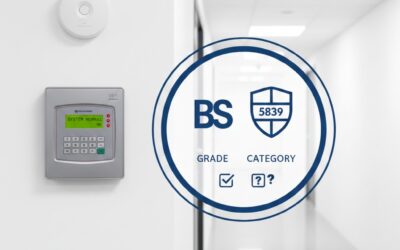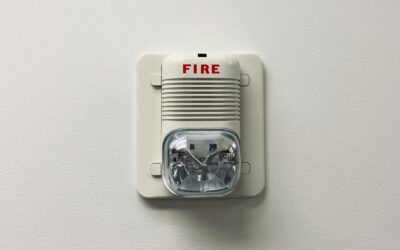The wiring of a commercial fire alarm is a critical aspect of its design and installation. In commercial properties, fire alarm systems need to be robust and tailored to the building’s specific needs. A regulatory framework determines how systems should be designed and installed, to ensure reliable operation in the event of a fire.
Wiring is the backbone of the system, connecting detectors, sounders, call points, and the control panel. It creates the integrated network required to detect and respond to fire hazards.
How are commercial fire alarms wired to ensure they operate effectively in an emergency?
Is it a legal requirement to have a fire alarm in a commercial property?
Most commercial properties in the UK are required to have a fire alarm system. The Regulatory Reform (Fire Safety) Order 2005 requires employers, building owners, and occupiers to ensure that appropriate fire safety measures are in place. This usually means fire detection and alarm system, with specific requirements depending on the size, nature, and use of the premises.
Small businesses with simple layouts may only need basic manual call points. Larger or more complex properties could require comprehensive systems with automatic detection. Buildings such as hotels, hospitals, and multi-occupancy properties will typically require more advanced and extensive systems to ensure occupants are safe.
Failure to comply or to ensure that the system is maintained and functioning properly can result in significant fines.
How do commercial fire alarm systems work?
Components such as fire detectors, sounders, control panels, manual call points, and visual alarms, are all connected through appropriate wiring to provide comprehensive coverage of the building. How are commercial fire alarms wired to ensure they operate in the event of a fire?
Typically, fire alarms can be wired in different configurations depending on the type of system and the building’s layout:
- Conventional systems
These use physical wires to connect detectors and call points to specific zones on the control panel. When a fire is detected, the panel will identify the affected zone, but not the exact device. Conventional systems are suitable for smaller properties.
- Addressable systems
Each device has a unique address and is individually wired to allow the control panel to pinpoint the exact location of a fire. Addressable systems are suitable for larger buildings or those with more complex layouts.
- Wireless systems
Wireless systems use radio signals instead of wiring to connect components. This provides greater flexibility and quicker installation, particularly in buildings where extensive wiring might be impractical or overly disruptive.
Professional fire alarm advice, installation and maintenance
At Protive Security, we provide a comprehensive commercial fire alarm system installation and maintenance service for residential and commercial properties. We can advise about the best choice of system for your property and then design and install that system to the highest professional standards.
Contact our experienced team for further advice and to receive an accurate quotation.





